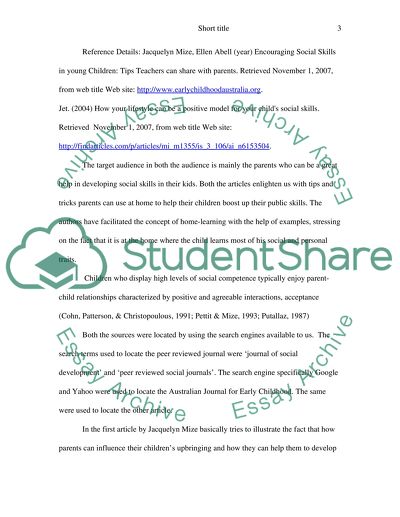Cite this document
(“Social Skills Development in Early Childhood Essay”, n.d.)
Social Skills Development in Early Childhood Essay. Retrieved from https://studentshare.org/miscellaneous/1527405-social-skills-development-in-early-childhood
Social Skills Development in Early Childhood Essay. Retrieved from https://studentshare.org/miscellaneous/1527405-social-skills-development-in-early-childhood
(Social Skills Development in Early Childhood Essay)
Social Skills Development in Early Childhood Essay. https://studentshare.org/miscellaneous/1527405-social-skills-development-in-early-childhood.
Social Skills Development in Early Childhood Essay. https://studentshare.org/miscellaneous/1527405-social-skills-development-in-early-childhood.
“Social Skills Development in Early Childhood Essay”, n.d. https://studentshare.org/miscellaneous/1527405-social-skills-development-in-early-childhood.


